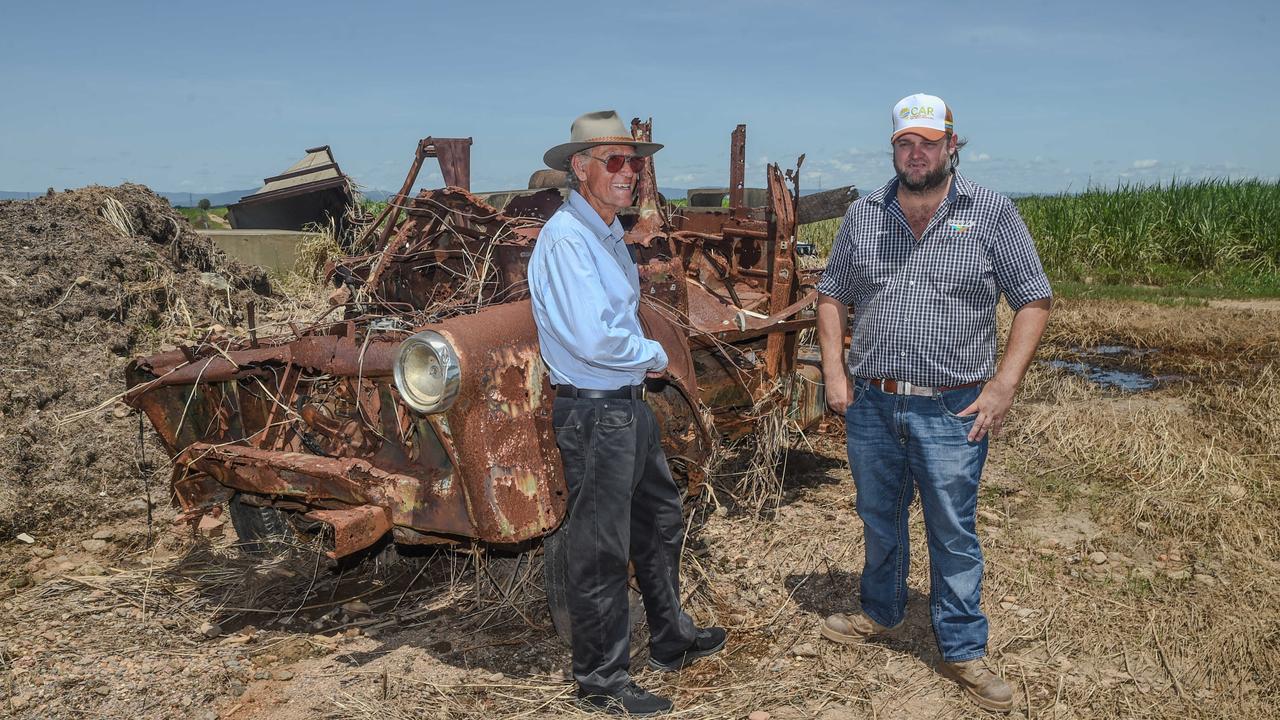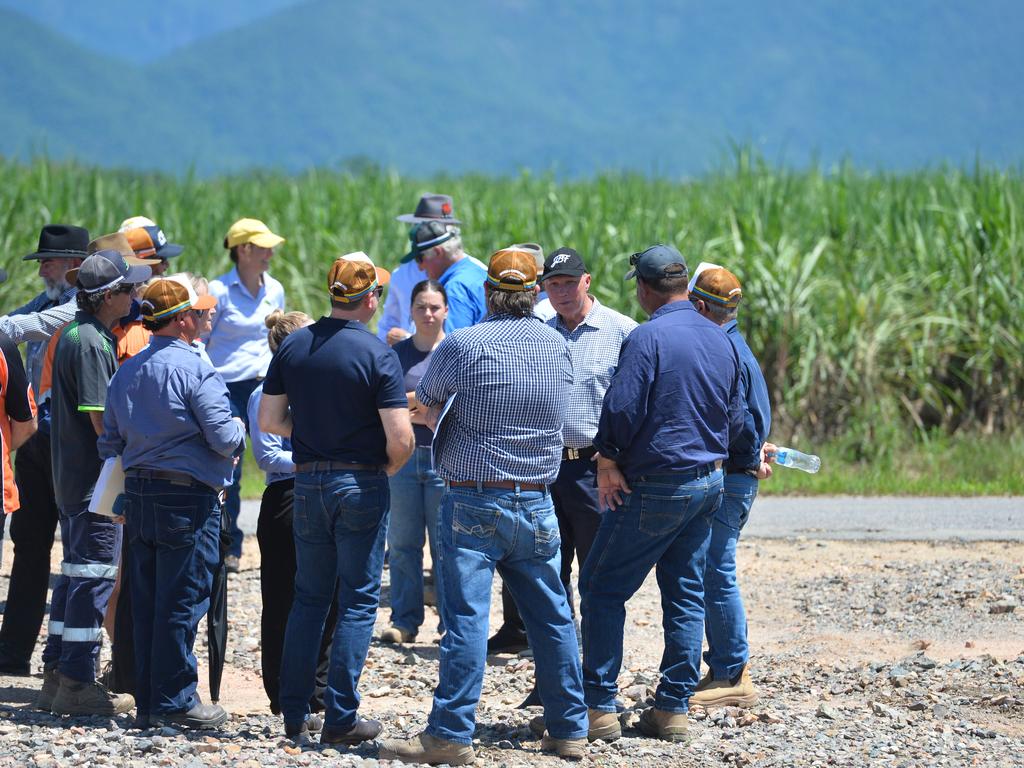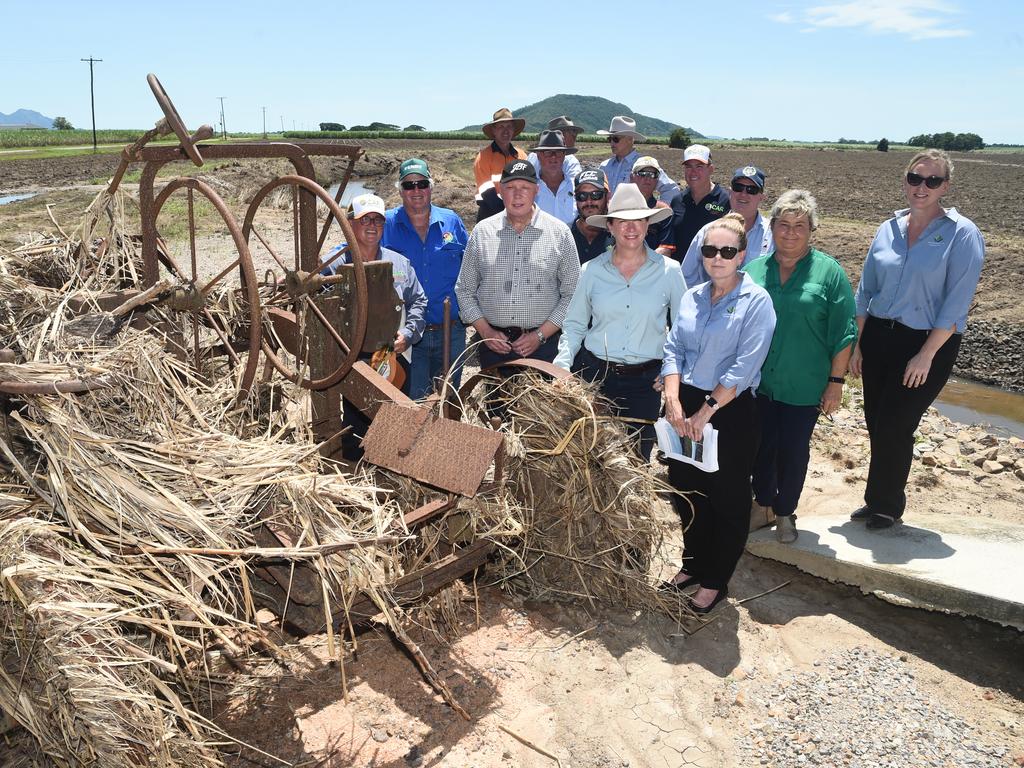Ingham cane farmers John Board and Ian Kemp’s devastation following flood event
The recovery process for Ingham farmers will be a long and tiresome one with some producers not expecting to make a dollar of profit for years. Now they are asking for more assistance.

Townsville
Don't miss out on the headlines from Townsville. Followed categories will be added to My News.
Devastated cane farmers will have to fork out hundreds of thousands of dollars as they begin repairs on their properties, with many not expected to see any profit from their crops for years.
Ingham farmers are preparing for a hard and lengthy recovery process as they begin assessing their farms this week following record breaking rainfall.
John Board lost nearly a third of his cattle during the disaster, and is preparing for the loss of income and cost of repairs to set him back $1 million.
“I can quickly work out what I’ve lost and what I need to spend, but I don’t have that money to do the repairs,” he said.
“I don’t want to take the seriousness away from the wider community, they’ve got some massive losses too.

“Humans and livestock, they have heartbeats, and I’d prefer them to get help, but I don’t think people actually understand how big the numbers are for primary producers.”
Mr Board’s family has been farming the area for decades, and after buying his first farm at 23 years old he was intending to work the farm with no off farm income for the first time this year, something he is unsure he will be able to do now.
With disasters such as the floods, the mental health impact on victims and farmers can take a massive toll, something that Ingham farmers are currently experiencing.
“I’ve struggled with mental health personally,” Mr Board said.
“Farmers generally don’t ask for help, we just put it to the back of our mind and just fix it ourselves.
“To lose income or borrow money to fix this stuff, it adds to your mental health.”
“It’s good to see them (politicians) here,” Mr Board said.
“But one of the things I really want to know from them is … in 12 months’ time, when we’re still recovering, I want to know will they remember this conversation and these photos?”
Mr Board believes access to available grants should be made more accessible and dependent on the size of someone’s farm.

“There’s a lot of hoops to jump through, a lot of red tape. If they honestly want to help us make less red tape, less hoops to jump through, just literally help,” he said.
“Even if you are a primary producer, how much help you can get doesn’t depend on the size of your farm or what, it’s a one-off payment. So the biggest farmer in Ingham, the smallest farmer in Ingham gets the same thing.”
A fourth generation farmer, Ian Kemp, has seen plenty of flooding events, but he said none have caused such devastation as this one had.
“This is the largest flood I’ve lived through,” he said.
“I lived through the 1967 (floods) which is supposed to be a big one and I used to tell people this is how high the water had come up, well it’s come metres higher in places.”
He said that farmers may have to wait up to four years to see any income coming off their flood affected paddocks which could be made worse with a lack of workforce available to help fix paddocks, replant them and harvest.
“Some of these guys they’re going to lose most of their income for this year, or they’re not going to break even,” Mr Kemp said.
“We haven’t got enough workforce anymore … where do we start? What do we do?”
The 78-year-old said while the community resilience and support has been great, everyone had been shell-shocked as the water rose, roads crumbled and the power went out.
“Our phones went out, that’s substandard sort of stuff, at this time in our life,” Mr Kemp said.
“A lot of people were without power for 10 days. Can you imagine?”
More Coverage
Originally published as Ingham cane farmers John Board and Ian Kemp’s devastation following flood event









